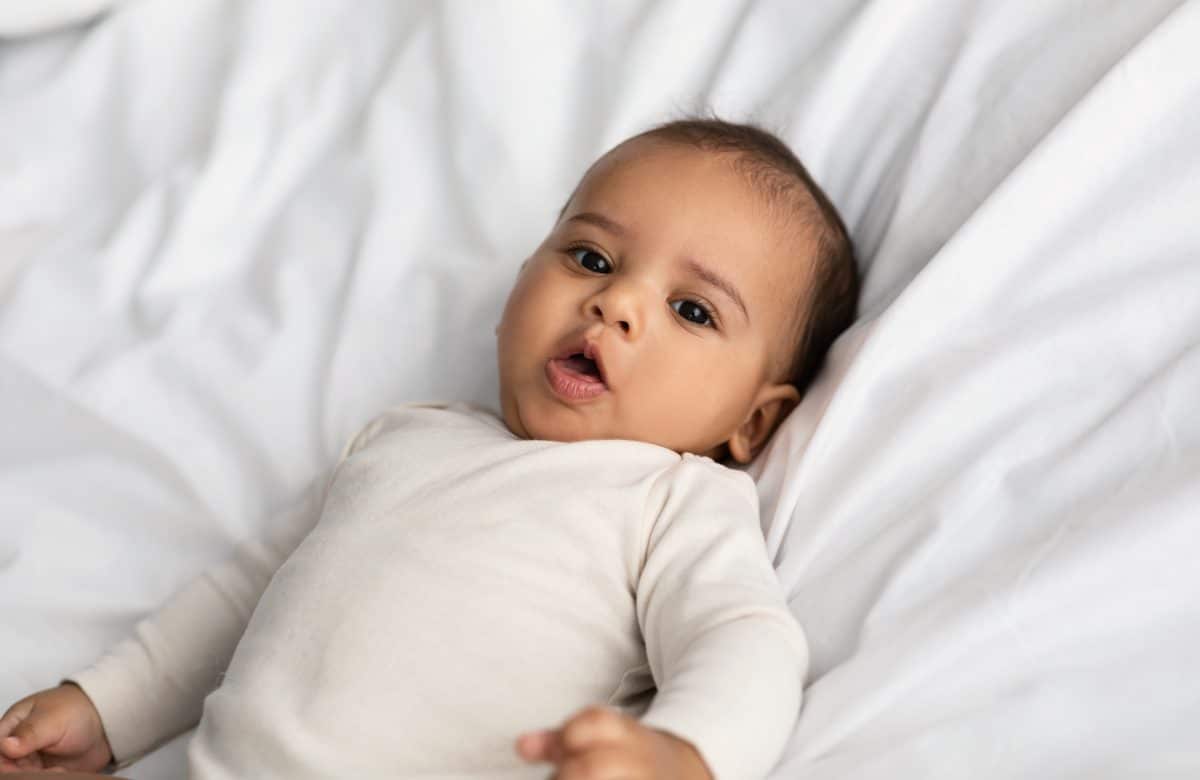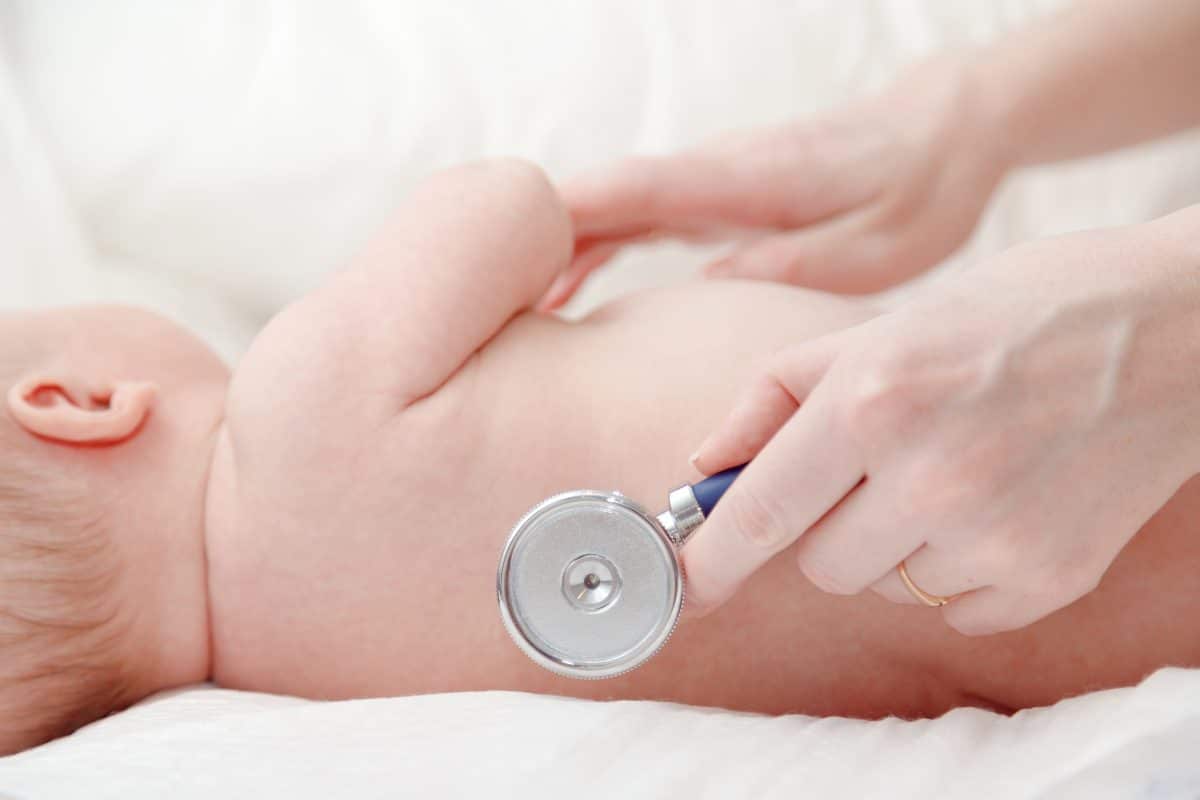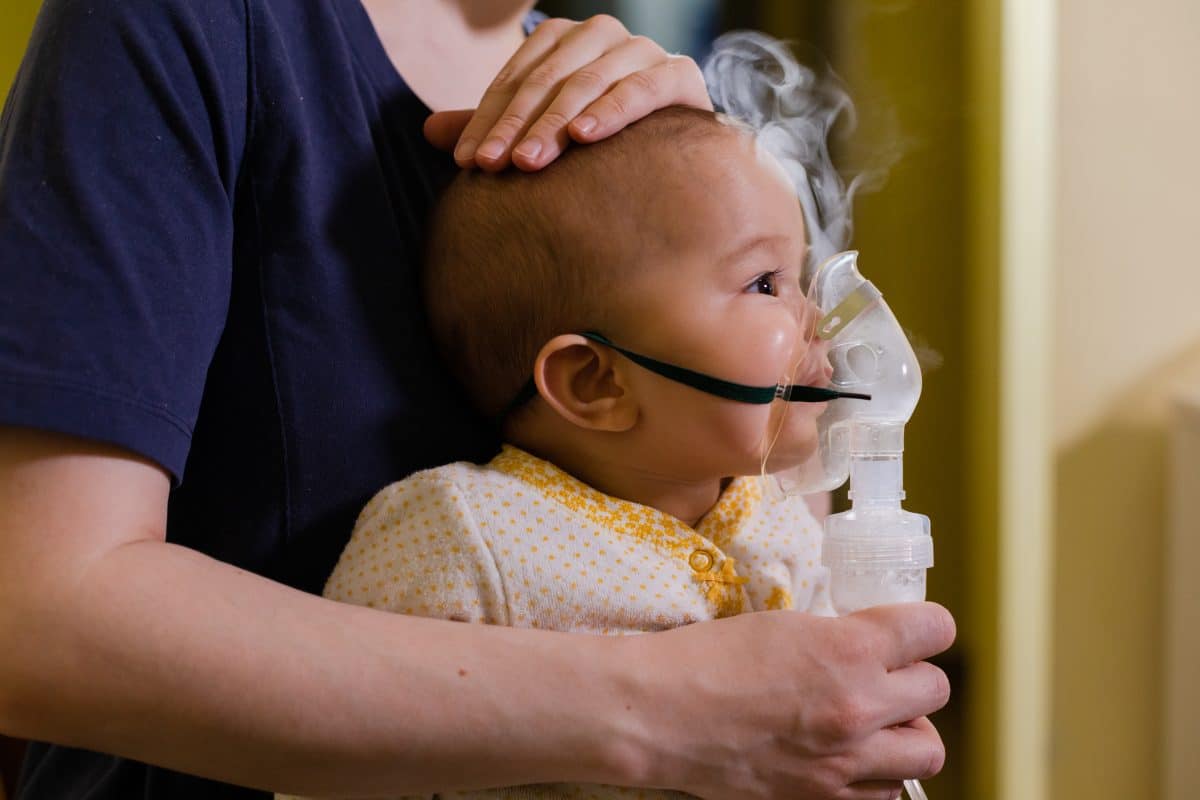Signs of Asthma in Babies

Is it a normal cough or something more serious?
Let’s take a look at the signs of asthma in babies so you can start treatment ASAP.
Coughing, wheezing, and fussiness are always troubling symptoms to witness in your children. And while these symptoms can sometimes indicate a run-of-the-mill respiratory infection, chronic difficulty breathing can point to a more serious condition: asthma.
Contrary to what you might think, it is possible for a doctor to diagnose asthma in babies. But the good news is that early diagnosis and treatment of this condition can make it easier to live with the symptoms.
In this article, we’ll take a closer look at the signs of asthma in babies, common triggers to avoid, and how you can treat it.
What Is Asthma?
Asthma is a condition in which the airways in the lungs become inflamed, affecting breathing. The airways may also produce extra mucus.
When this happens—often after being exposed to an allergen or other environmental trigger—it is called asthma exacerbation, or an asthma attack.
This reaction is caused by the immune system, but asthma is not considered an autoimmune disease. While asthma cannot be cured (at this point in time), it can be managed through medication and lifestyle changes.
What Causes Asthma?
There is no single factor that leads to developing asthma in children. Rather, there are a number of risk factors, including:
- Premature birth
- A family history of asthma, especially in a parent
- Allergies and/or eczema
- Viral infections in the first 6 months of life
- Biological mother smoking while pregnant
Signs of Asthma In Babies and Toddlers
When diagnosing older children and adults, doctors often rely on self-reporting of symptoms. For instance, your 9-year-old might complain of feeling tightness in his or her chest or feeling like they can’t breathe.
The signs of asthma in babies and toddlers, however, need to be noticed and reported by the parents.
Because you cannot ask your 3-month-old what is bothering them, you will have to look out for physical signs of asthma in babies, such as:
- Coughing
- A wheezing or whistling sound while breathing
- Shallow breathing or fast breathing
- Shortness of breath
- General fussiness and/or fatigue
- Bluish fingernails or skin
- Frequent colds
- Chest tightness (though they may not be able to communicate this)
You may also notice the skin around your baby’s neck or ribs retracting (pulling inward) if they have trouble breathing.
Common Asthma Triggers
If your child has asthma, the best way to avoid an asthma attack is by avoiding triggers.
There are many things that can trigger asthma symptoms, but the most common asthma triggers include:
- Tobacco smoke from cigarettes or cigars
- Dust mites
- Air pollution
- Insects, mice, and other pests
- Pet dander (if allergic)
- Mold
- Cleaning products and disinfectants
- Cold, dry air
- Upper respiratory infections such as a cold or flu
Keeping your home clean will reduce the risk of asthma attacks, so rid your home of allergens, dust, pests, mold, and cigarette smoke. You should also quit smoking entirely and avoid areas where you will come into contact with secondhand smoke, as you can bring in particles on your clothes and hair.
When cleaning, stick to EPA-approved cleaning products and don’t overuse them. Avoid cleaning around children with asthma and create plenty of ventilation
Diagnosing and Treating Asthma in Babies
In most older children and adults, asthma is diagnosed by a lung function test, or pulmonary function test. However, this test requires that a child follow clear instructions, so it’s not usually performed on children younger than 6 years of age.
Instead, your child’s doctor will probably ask you several questions about your family history and your baby’s symptoms to arrive at a diagnosis.
Your treatment plan will likely include eliminating items that trigger asthma attacks as well as asthma medications to open the airways.
For infants and toddlers, asthma medicine is usually administered through a nebulizer. While most children hate taking medicine, asthma medications are a bit easier and can provide quick relief. While the machine can be loud, the experience is rarely unpleasant and children are usually more than happy to sit through a treatment in exchange for a few extra minutes of screen time!
Breathe Easy With Kid Care Pediatrics
Having a child with asthma is often a cause for concern, but at Kid Care Pediatrics, our goal is to provide reassurance through education and stellar medical care.
If your child is displaying any of the signs of asthma in babies, please schedule an appointment at one of our three locations as soon as possible. Our friendly pediatricians and nurse practitioners will discuss symptoms and family history and answer any questions you may have.
Kid Care Pediatrics
Kid Care Pediatrics has been in existence since October 2001. It was established by Omar A. Gomez, M.D. The practice philosophy at Kid Care Pediatrics is to provide quality pediatric medical care for children in a professional yet caring manner.


